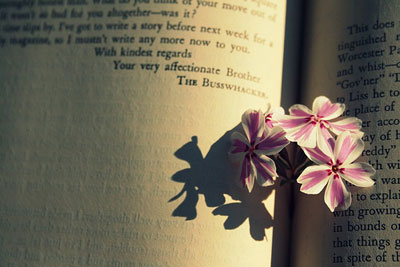All Nonfiction
- Bullying
- Books
- Academic
- Author Interviews
- Celebrity interviews
- College Articles
- College Essays
- Educator of the Year
- Heroes
- Interviews
- Memoir
- Personal Experience
- Sports
- Travel & Culture
All Opinions
- Bullying
- Current Events / Politics
- Discrimination
- Drugs / Alcohol / Smoking
- Entertainment / Celebrities
- Environment
- Love / Relationships
- Movies / Music / TV
- Pop Culture / Trends
- School / College
- Social Issues / Civics
- Spirituality / Religion
- Sports / Hobbies
All Hot Topics
- Bullying
- Community Service
- Environment
- Health
- Letters to the Editor
- Pride & Prejudice
- What Matters
- Back
Summer Guide
- Program Links
- Program Reviews
- Back
College Guide
- College Links
- College Reviews
- College Essays
- College Articles
- Back
The Perks of Being a Wallflower: Novel and Film
While it is always exciting to hear that a movie version of your favorite book is coming out, more often than not, the movie is a disappointing, butchered version of a once great story. However, this does not hold true when it comes to the film adaptation of the well-known Stephen Chbosky novel, The Perks of Being a Wallflower.
Written and directed by the author Stephen Chbosky, the film held as true to the novel as it could without being the world’s longest movie. Obviously, every detail from the book could not be incorporated into the adaptation, but Chbosky made sure to include every point he could, only excluding minor details that were insignificant to the plot as a whole.
Though it is difficult to find a cast of actors and actresses that match every detail of the characters developed in a novel, this film was able to catch the essence and persona of each character with the specific actor that portrayed them. Charlie, the protagonist and central focus of both the novel and film has a major impact on how all of the other characters in the works are developed. While Ezra Fitz, the actor that played Charlie’s best friend Patrick, was the perfect person to fill the role of such an essential character, two of the other main characters could have been cast better. Emma Watson, who played Charlie’s love interest, seems to be less exciting and out of the ordinary in the film, in comparison to the way her character was characterized throughout the novel. Also, the actress portraying Charlie’s sister Candace was Nina Dobrev. She took over her role with grace and power, but she would have been able to better take on the character in which Emma Watson was casted, than her own. Additionally, Emma Watson’s characterization of Sam seems more like a close sister than a flirtatious friend. Aside from these two, every role was taken on with extreme precision and confidence, resulting in a well rounded, effective, and powerful cast, who only enhanced Charlie’s complex and developed character.
As for the other details incorporated into the novel, the setting is brought to life through the set developed in the film. Created in 2012, the film makes you feel as if you have teleported back into the ‘90s and are observing life in that time, especially through the fashion of each character, their language, and other seemingly unimportant details that develop the film into something extraordinary. While the book does the same, it is much easier to create a transformational setting in a movie than in a novel, but Chbosky is successful in both.
A downfall that Chbosky had when creating the film adaptation was his portrayal of the relationship Charlie has with his parents. In the novel, his parents are more prevalent in the story and have more of an effect on him and his decisions than they do in the movie. Throughout the film they seem to just lull around in the background instead of having significant, and important moments of dialogue like they did in the novel.
Overall, the adaptation of The Perks of Being a Wallflower was a successful and enjoyable film to watch having already read the book. Whether you read the novel before viewing the film, or the other way around, you’re guaranteed to enjoy the experience. Chbosky held true to his novel, creating a truly magical film.

Similar Articles
JOIN THE DISCUSSION
This article has 0 comments.
